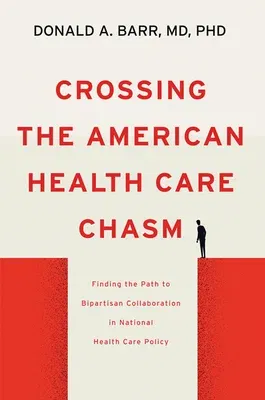Why is there such a deep partisan division within the United States
regarding how health care should be organized and financed--and how can
we encourage politicians to band together again for the good of
everyone?
For decades, Democratic and Republican political leaders have disagreed
about the fundamental goals of American health policy. The modern-day
consequences of this disagreement--particularly in the Republicans'
campaign to erode the coverage and equity gains of the Affordable Care
Act--can be seen in the tragic and disparate impact of COVID-19 on the
country. In Crossing the American Health Care Chasm, Donald A. Barr,
MD, PhD, details the breakdown in political relations in the United
States. Why, he asks, has health policy--which used to be a place where
the two sides could find common ground--become the nexus of fiery
political conflict?
From Harry S. Truman's failed attempt to enact a plan for national
health insurance to the recent efforts of President Donald J. Trump,
Barr's historical analysis also touches on every presidential
administration in between. Tracing the bipartisanship that developed
over the four decades following the passage of Medicare and Medicaid in
1965, Barr explains why this spirit of cooperation has given way to such
a seemingly unbridgeable ideological chasm. Exploring how political
conflict affects health care organization, financing, and delivery, Barr
also offers a detailed analysis of the multiple attempts on the part of
congressional Republicans and the Trump administration either to weaken
or to repeal the ACA. Crossing the American Health Care Chasm offers a
series of steps that policy makers can take to improve the national
health care situation and provide a basis for ongoing bipartisanship as
we continue to confront the policy challenges facing our country.
Ultimately, Barr argues, this divide is more dangerous than ever at a
time when health care costs continue to skyrocket, the number of
uninsured Americans is rising, many state governments are chipping away
at Medicaid, and the GOP has not let up in its efforts to dismantle the
ACA. This book will be of profound interest both to those responsible
for carrying out national health care policy and to those who study
health policy from an academic perspective.

